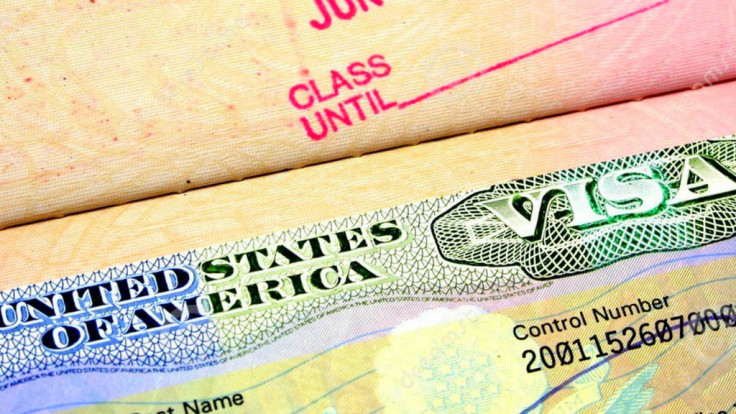
At least 19 international students are taking legal action against the US Immigration and Customs Enforcement (ICE) following the abrupt termination of their student statuses. The students are demanding reinstatement of their immigration status, arguing that it was revoked without legal justification. These lawsuits come amid US President Donald Trump's sweeping crackdown on campus protesters, particularly those perceived to support Hamas. With the controversial arrests of Columbia University students Mohsen Mahdawi and Mahmoud Khalil still generating public attention, the legal challenges are intensifying scrutiny over what many view as government overreach and unlawful surveillance.
'ICE Cannot Misuse SEVIS': Students Fight Back in Federal Lawsuit
Seventeen international students have filed a federal lawsuit in Georgia, accusing ICE of revoking their visas via the Student and Exchange Visitor Information System (SEVIS) without due process. The students argue that this not only disrupted their education and careers, but also violated their legal rights. The lawsuit reads: 'ICE cannot misuse SEVIS to circumvent the law, strip students of status, and drive them out of the country without process.'
The defendants named in the suit include Acting ICE Director Todd Lyons, US Attorney Pam Bondi, and Homeland Security Secretary Kristi Noem.
Two more international students based in California have launched a separate lawsuit, stating that they were in full compliance with academic and immigration requirements when ICE unexpectedly revoked their visas. Their case is being supported by the National Immigration Project (NIP), the Law Offices of Stacy Tolchin, and Clinical Professor Annie Lai of the University of California, Irvine.
Lawyers for the plaintiffs maintain that having a visa revoked does not legally terminate student status, and therefore their clients should be permitted to remain enrolled.
'ICE has created chaos as schools have attempted to understand what is happening and do their best to inform and advise students,' the Georgia suit adds. 'Plaintiffs have a constitutionally protected property interest in their SEVIS registration.'
Legal teams are now pushing for a temporary restraining order to reinstate the students' SEVIS records and restore their lawful immigration status—a legal strategy similar to that used in Mahdawi's recent case to prevent his transfer to another detention facility.
Unclear Justifications Raise Red Flags Over Targeted Surveillance
The lawsuit highlights that ICE provided vague or inconsistent justifications for the visa revocations, including citing reasons such as being 'identified in criminal records checks'. Yet, the suit states that none of the students has committed serious offences. One senior at Georgia Tech, for example, was informed of his visa revocation just days before graduation—despite only having a dismissed traffic violation on his record.
According to the National Immigration Project, the affected students are disproportionately from Arab and Muslim backgrounds, with many hailing from Africa, the Middle East, and Asia.
'These are not isolated cases,' emphasised NIP Staff Attorney Khaled Alrabe. 'We are witnessing a disturbing trend where international students across the nation are losing their status abruptly and without legal justification.'
State Department's 'Catch and Revoke' Programme Flags Hundreds
The lawsuit is part of a wider crisis impacting international students across the US. As of 17 April, more than 1,400 students and recent graduates have had their F-1 or J-1 visas revoked or their legal status unexpectedly changed, according to Inside Higher Ed. Over 210 universities have reported incidents involving students who were otherwise in full compliance with visa requirements.
Many of these revocations are believed to be linked to the State Department's recently launched 'Catch and Revoke' initiative. The programme—reportedly driven in part by artificial intelligence—monitors social media, protest coverage, and legal complaints by Jewish students about alleged antisemitism. It is designed to flag foreign nationals suspected of supporting Hamas or other designated terror groups.
Since the initiative's rollout on 6 March, more than 300 visas have been cancelled within a three-week period. While proponents argue the system enhances national security, critics warn it enables sweeping surveillance and penalises peaceful student protestors without due process.
A Defining Legal Battle For Free Speech And Immigration Rights
The growing wave of lawsuits represents more than a legal defence against visa revocations—it's fast becoming a flashpoint in the battle over free expression, government surveillance, and immigrant rights in the US. These cases reveal the vulnerability of non-citizens to rapid policy shifts, particularly when surveillance tools and political motivations converge.
As legal challenges move forward, they may set crucial precedents not only for international students but for how dissent is treated in academic spaces. Whether the courts uphold or rebuke ICE's actions, the outcome is likely to influence immigration enforcement and student protections for years to come.







